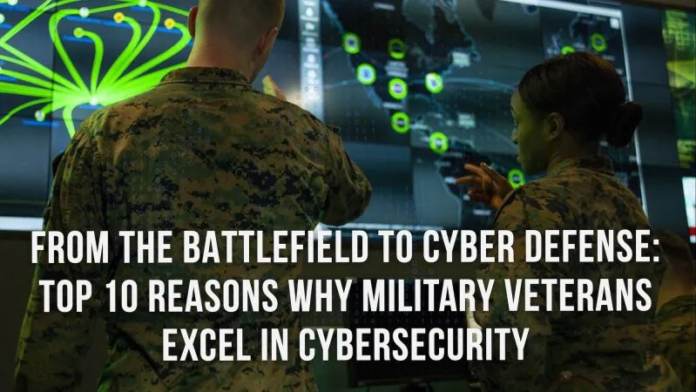Veterans embrace duty, responsibility, accountability, and performance requirements for completing mission objectives making them invaluable in defending against threats and attacks. Approximately twenty-five percent of GuardSight’s workforce are United States Veterans.
Many of our GuardSight Veterans were placed in demanding and arduous situations during their military careers, including facing life-and-death realities. From those experiences, they learned to adapt and overcome, transforming dysfunction into function. They help us operate efficiently and accomplish the primary mission objective: protecting customer assets. Here are the top 10 reasons why military veterans are force multipliers in cybersecurity roles.
- Adaptability: Military veterans are trained to adapt to constantly changing situations and think on their feet. In the cybersecurity field, this is crucial as threats and attacks are constantly evolving, and the ability to adapt and respond quickly is essential.
- Attention to detail: In the military, attention to detail can mean the difference between life and death. Similarly, in the cybersecurity field, overlooking a small detail could lead to a major security breach. Veterans are trained to pay attention to even the smallest details.
- Discipline: Military training instills a high level of discipline, which is invaluable in the cybersecurity field. Cybersecurity professionals must follow strict procedures and protocols to ensure the security of their organization’s systems and data.
- Teamwork: Military veterans are trained to work effectively as part of a team, which is essential in the cybersecurity field. Cybersecurity professionals must work together to identify, analyze, and respond to threats.
- Leadership: Veterans often have experience leading teams and making critical decisions in high-pressure situations. This leadership experience can be invaluable in cybersecurity roles where quick thinking and decision-making are required.
- Problem-solving skills: Military veterans are often trained to solve complex problems, and this skill is highly valuable in the cybersecurity field. Cybersecurity professionals must be able to analyze data, identify threats, and develop solutions quickly and efficiently.
- Risk management: Veterans are trained to manage risks and make decisions in high-risk situations. In cybersecurity, managing risks is crucial to prevent potential threats from becoming actual breaches.
- Integrity: The military instills a strong sense of integrity and ethics, which is highly valued in the cybersecurity field. Cybersecurity professionals must adhere to strict ethical standards and maintain the confidentiality of their organization’s data.
- Technical expertise: Many military veterans have technical expertise in areas such as communications, cryptography, and network operations. These skills can be highly valuable in the cybersecurity field.
- Security clearance: Many military veterans have held security clearances, which can be a significant asset in the cybersecurity field. Clearances demonstrate a level of trustworthiness and integrity, which is highly valued in the field.
- ADVERTISEMENT -




